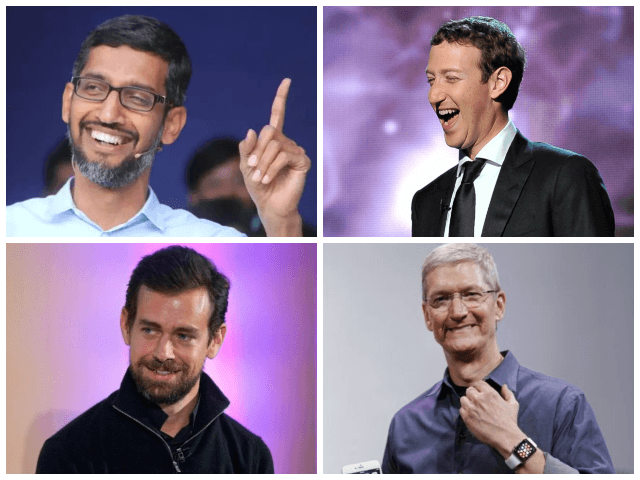The Senate, now under the control of the Democrats, is escalating efforts to reform antitrust law to target anticompetitive behavior by major tech companies.
While the reform effort does not address the problem of big tech’s political interference and censorship, which overwhelmingly favors Democrats, it does include major reforms to competition law aimed at preventing Google and other tech companies from colluding to keep out competitors.
The bill, named the Competition and Antitrust Law Enforcement Reform Act, targets Big Tech’s exclusionary conduct, adding even more enforcement against the practice than provided by Section 2 of the Sherman Act.
“Exclusionary conduct” refers to business activity that creates or maintains monopoly power by disadvantaging and harming competitors.
It is a critical concept in determining whether a company is behaving in an anticompetitive or monopolistic manner, a determination that, under U.S. law, is not made by analysis of market share alone.
The tech giants are regularly accused of engaging in exclusionary conduct.
For example, Oracle has accused Google of such behavior, in a long-running legal battle that is now before the Supreme Court.
via Forbes:
The Supreme Court is currently reviewing a case, Google v. Oracle, which deals with how Google appears to have copied thousands of lines of application programming interfaces (APIs) from Oracle’s Java without a license, in violation of IP law, to create its mobile operating system Android. “In the ensuing years, mobile search has surpassed desktop. Android now enjoys a duopoly on smartphones in the U.S. and controls 75% of the global market, and Google started paying Apple billions of dollars to become the default search engine. Google has used Android to favor other verticals as well, like YouTube, Gmail, and Google Maps. In addition, Android ruthlessly invades consumer privacy—greatly strengthening Google’s data monopoly. Android’s rise was necessary for Google to entrench its market power across search, advertising, data, browsing, email, and other platforms. And this dominance would not have been as easily or profitably achieved had Google paid the license for the APIs in the first place.
Google, Apple, and Facebook have also been accused of engaging in collusive dealmaking, another anticompetitive practice that would be targeted by the bill.
via Politico:
Google and Facebook, the No. 1 and No. 2 players in online advertising, made a secret illegal pact in 2018 to divide up the market for ads on websites and apps, according to an antitrust suit filed Wednesday against the search giant. The suit — filed by Texas and eight other states — alleges that the companies colluded to fix prices and divvy up the market for mobile advertising between them. The allegation that Google teamed up with Facebook to suppress competition mirrors a major claim in a separate antitrust suit the Justice Department filed against the company in October: that Google teamed up with Apple to help ensure the continued dominance of its search engine.
via NPR:
Buried on Page 36 of the Justice Department lawsuit accusing Google of abusing its monopoly power is this remarkable figure: $8 billion to $12 billion. That’s the hefty sum Google allegedly paid Apple for one of the most prized pieces of real estate in the world of online search: default status on iPhones and all other Apple devices. Justice Department investigators say Apple, which does not have its own search engine, hammered out a multiyear deal making Google the default search engine on all iPhones and other Apple products. It meant that Web browser Safari, voice assistant Siri and device query feature Spotlight all made Google the default choice. Clinching default search status on Apple products was a victory of historic proportions for Google.
By preventing similar deals from being made in the future, the Senate bill aims to rein in big tech’s ability to suppress its competition.
Allum Bokhari is the senior technology correspondent at Breitbart News. His new book, #DELETED: Big Tech’s Battle to Erase the Trump Movement and Steal The Election, which contains exclusive interviews with sources inside Google, Facebook, and other tech companies, is currently available for purchase.

COMMENTS
Please let us know if you're having issues with commenting.